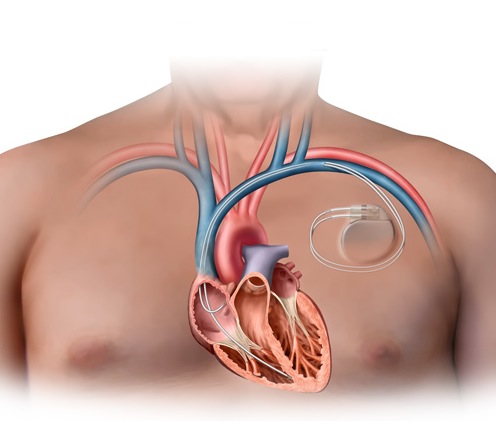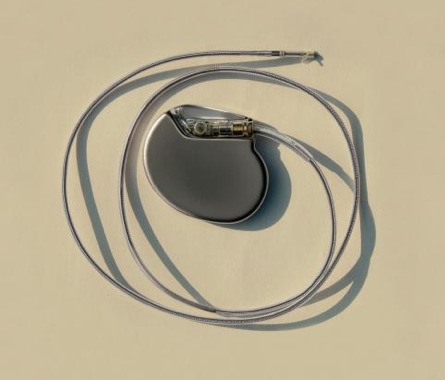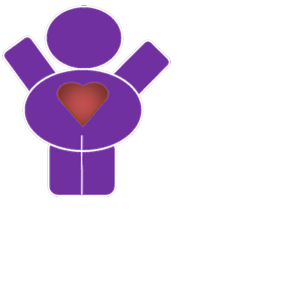Pacemaker
The doctor recommends implanting a pacemaker in your child when his heart does not beat like it should and cannot pump enough blood to supply the necessary energy to his body.
¿What is a pacemaker?
An electronic device that electrically stimulates the heart. It can be internal (it is placed in the chest under the skin) or external.
How does it work?
A pacemaker waits for and monitors the heartbeat. When the pacemaker detects that too much time has elapsed between heartbeats or that the heart has decreased its speed to a certain point, it stimulates it or produces a heartbeat. The child does not notice when a heartbeat is produced. The pacemaker is implanted in the operating room or in the catheterization laboratory.
What are the requires special cares?
In general there are no special restrictions for patients with pacemakers, but some precautions are required during the first weeks after the implantation, on top of other considerations:
1.- Take care of the incision (surgical wound) during the first few days:
- The incision is the place where the doctor made a bag for the pacemaker. The boy absorbs the sutures used to close the incision.
- Do not remove the special adhesive bands that cover the incision. Ina week or two they will fall off by themselves.
- Maintain the incision dry, do not apply any ointments.
- If you take a shower, try to prevent water from falling directly on the wound. Try to keep the wound away from the falling water.
- Protect the scar from the sun while it is still pinkish with sunblock SP15 sunblock protector.
- Call the doctor is you observe any discharge, redness or inflammation around the wound or experience fever.
You should periodically verify that it is working correctly at the hospital or doctor’s office.
3.- Do not perform certain physical activities.
After the implantation and before the first visit to the hospital, to allow the electrodes to settle in the lower part of the heart, the cild should not ride a bike, participate in physical education at school or other similar activities.
After the first visit to the hospital, in general, the child can lead a normal active life, put even then you should inform your doctor.
4.- Avoid shocking and shaking the pacemaker. For this:
- Teach the siblings not to punch the pacemaker when they are playing or fighting.
- Tell the child that he must not touch the place where the pacemaker is installed.
- She should not practice karate or any other type of martial arts, jump on a trampoline or play football.
- He should not play goalie on a soccer team.
- He should not perform free-fall skydiving.
- Consult your doctor before sea diving.
- Don’t get too close to microwave ovens (stay away at least three feet when turned on).
- Stay 6 feet away from arc welding machines.
- Keep cell phones at least 7 inches away.
- Do not submit to MRI studies. There is no danger with X-rays or Cat scans.
- Show ID card at airports and other places that have metal detectors.

